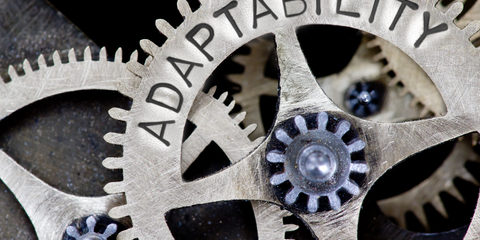As humans, we are wired with incredible abilities that help us heal, grow, and survive. We have been able to get to where we are today because we come equipped with a very specialized body and brain. The human body innately modifies its physiology to maintain survival in many different types of environments. And when the environmental conditions become too extreme for survival, our complex brains have the ability to figure out how to modify that environment to help keep us alive.
One word that sums up our amazing ability to not only survive, but to thrive, is adaptation. Humans are very adaptable. This adaptability has allowed our species to inhabit just about every area of earth. While we should recognize and value the incredible benefits of such adaptability, it comes with a potential downside. So, let’s look at some of the ups and downs associated with human adaptation.
On the upside (and adaptation is mostly good), our bodies make modifications every second of every day just to keep us alive. As I sit here now, writing this article in the hot sun, I feel and see sweat on my skin. In order for my body to maintain its ambient temperature of approximately 98.6 degrees, my body must do something to release some of the excess heat so internal damage does not occur. Fortunately, my brain is sending signals to my skin to open up my pores and millions of sweat glands, telling them to release some fluid, which, once on the skin’s surface, evaporates. This evaporation is what cools down my body. The hotter I get, the more I will sweat. Amazing adaptability!
If I get up and go into the air-conditioned house, my brain will send signals to those same sweat glands telling them to stop producing liquid. My skin will also tighten up, closing the pores, in an effort to maintain the heat within my body in order to prevent me from becoming too cold. And if I were to step into a walk-in freezer, it would only be a matter minutes before my brain tell the muscles to contract rapidly (shivering) in an effort to create more heat within my body. This is a simple example of adaptation. I am amazed at how many processes like this must occur each second. What’s even more amazing is that these processes all happen without us even having to think about it. We do a pretty good job of adapting to the environment around us.
A friend of mine moved in to a house right next to a railroad track. The trains whipping by made a loud noise and rattled the house. It was very startling and annoying. But, after just a few weeks, his nervous system adapted to it, and it became something that was unnoticeable. As friends or family visited, they would jump as the train went by, but my friend would not even notice it. The body is smart enough to drown out stimuli that is consistent to avoid having to expend energy dealing with it over and over.
While most adaptation is not only beneficial, but essential, I see this function working against a lot of people every day. If you eat a poor diet, do not get enough exercise, sleep poorly, and are surrounded by stress every day, your body will get worn down. You will likely feel tired all the time, be less productive, and be moody. If I took a healthy person and just threw them into that body, they would freak. It would be unacceptable to live that way. However, because you continued to neglect your body’s needs (in this example), it adapted to its current status. It accepted that as normal. This is good in that you don’t realize how bad things really are, but terrible in that you will have adapted to the point that not realizing how bad things really are keeps you from taking the necessary action to get back to a healthy state.
Think about the things you’ve adapted to in your life. A body that years ago would have been unacceptable? A job that brings no fulfillment or sense of purpose? A marriage that lacks fun and passion? Sure, on one hand, your body and brain are doing you a service by keeping you from realizing the misery you currently live in. But, on the other hand, this adaptation has cost you a life of optimal living and awesomeness.
So, let’s be in awe of our body’s incredible ability to adapt in ways that keep us alive and well day-in and day-out, but let’s not accept adaptation to allow us to merely eek by in health, work, and relationships.







